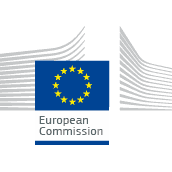
Implementation of best practices to promote health and prevent noncommunicable diseases and to reduce health inequalities - Transferring the Swedish Physical Activity on Prescription Initiative to other countries - PJ-04-2018
Deadline: Sep 13, 2018
CALL EXPIRED
CALL EXPIRED
Human Resources
Disadvantaged People
Health Care
Medical equipment
Sports
E-Health
Higher Education
Mental health
Clinical trials
Non-communicable chronic diseases have a major impact on the health of European citizens on the burden on health systems, and on the productivity of our societies. Contributing for decision makers in Member States to have the most up to date knowledge on best practices related to the reduction of such burden is thus most relevant to better support national health systems and EU citizens. Supporting the awareness, commitment and roll-out of initiatives that have shown to work is an essential way of creating and delivering value to the citizens.
Whereas a best practice cannot be replicated without adaptation and adjustment, the results, experience of ongoing and past initiatives always constitute a wealth of relevant knowledge. Taking them into consideration may allow to avoid mistakes or to leap frog painful development steps; ignoring them may result in huge wastes of time and resources, and of opportunities to improve public health.
Public health authorities should have access to the best scientific evidence base and to the expert evaluation of tried practices whenever considering disease prevention and management options. They should also have the opportunity to be briefed directly by those that have successfully led (past) initiatives and discuss, among others, pitfalls and success factors. Finally, they should be supported in the key steps of preparation of implementation so as to increase scope and likelihood of success.
Building on such information and support, and considering their national context and political priorities, Member States can then be in a better position to proceed with wide scale implementation of validated best practices and interventions. The stronger the commitment and the wider the roll-out, the more promising the results for the patients and citizens will be.
In order to support this process of promoting that more tested solutions benefit the citizen as fast and wide as possible, the Commission has set up the Steering Group on Health Promotion, Disease Prevention and Management of Non Communicable Diseases This Group selects best practices for transfer between countries with the support of the 3rd Health Programme and other sources.
In this context, the SGPP has recently selected two relevant best practices for transfer from the "owner" to other Member States/countries participating in the 3rd Health Programme. These are the Swedish Prescription of Physical Activity (PPA) initiative which was identified as a particularly valuable one and has been replicated in Iceland already as well as the Italian cardiovascular screening programme "CARDIO 50"
Several Member States have already expressed interest in discussing the rolling out of thses practicesand the Commission wishes to further support this process.
For that purpose, this call for proposals is being launched and should facilitate the transfer of the two selected best practices to other countries.
Topic 1 - Transferring the Swedish Physical Activity on Prescription Initiative to other countries
The proposals should describe how the concept of PPA will be deployed in the participating Member States, including how the responsible authorities (those that can implement PPA at the level of the health systems) will be involved and their commitment secured with the objective of achieving the sustainable widest possible roll-out of the practice by the end of the action. It is suggested that the project has a time span of up to 3 years.
Among others, the proposals should describe how actions will be taken to:
- assess the preparedness and feasibility of (local, regional, national) health services in selected countries for introducing PPA;
- increase the awareness of the importance of physical activity as a measure for prevention and treatment of disease among policy-makers and health professionals;
- develop, translate and provide high quality implementation tools for PPA;
- train trainers and professionals in the core components of the Swedish PPA methodology (adapted to the national context);
- implement local, regional or national activities for contextualized practice transfer;
- monitor the implementation process and assess the outcome of the implementation of PPA;
- design measures to assess and increase the sustainability of PPA after the implementation phase;
- develop opportunities and supportive networks for capacity building between the participating countries and the EU.
Actions such as feasibility assessments or studies, legal checks, needs assessment (including training), cost estimations, preparation of replication manuals (including translations where necessary), definition of clinical protocols, design of e-prescription modules, setting up of e-learning tools, study visits and twinning, workshops with stakeholders, etc., would be expected.
Unless duly justified, it is expected that the public health authorities of at least the following countries will be involved: Sweden, Iceland, Romania, Lithuania and Portugal, and also Austria, Belgium, Hungary, Denmark, France, Italy, Malta, and Slovenia.
The proposals should describe and justify which indicators will be used to measure outcome (e.g.: patients' level of physical activity a few months after being prescribed physical activity) and to monitor the implementation of the action and measure the success of transferring the best practice (e.g. first prescription is achieved; number of medical professionals trained; translation and validation of guidelines and tools; number of PPAs per 1000 people; number of follow-ups; number of lifestyle counselling incorporated in the curriculum of doctors and other professionals). To complement the task of monitoring and evaluation, the selected proposal will be provided with an OECD guide to support the monitoring of the implementation of best practices in general and the design of indicators in particular. The OECD may also provide specific advice to this action on how to optimise the cost-effectiveness of the best practice and an economic analysis of its results.
Public link: Only for registered users
 EU4 Health Programme (EU4H)
EU4 Health Programme (EU4H)


Please Log In to See This Section